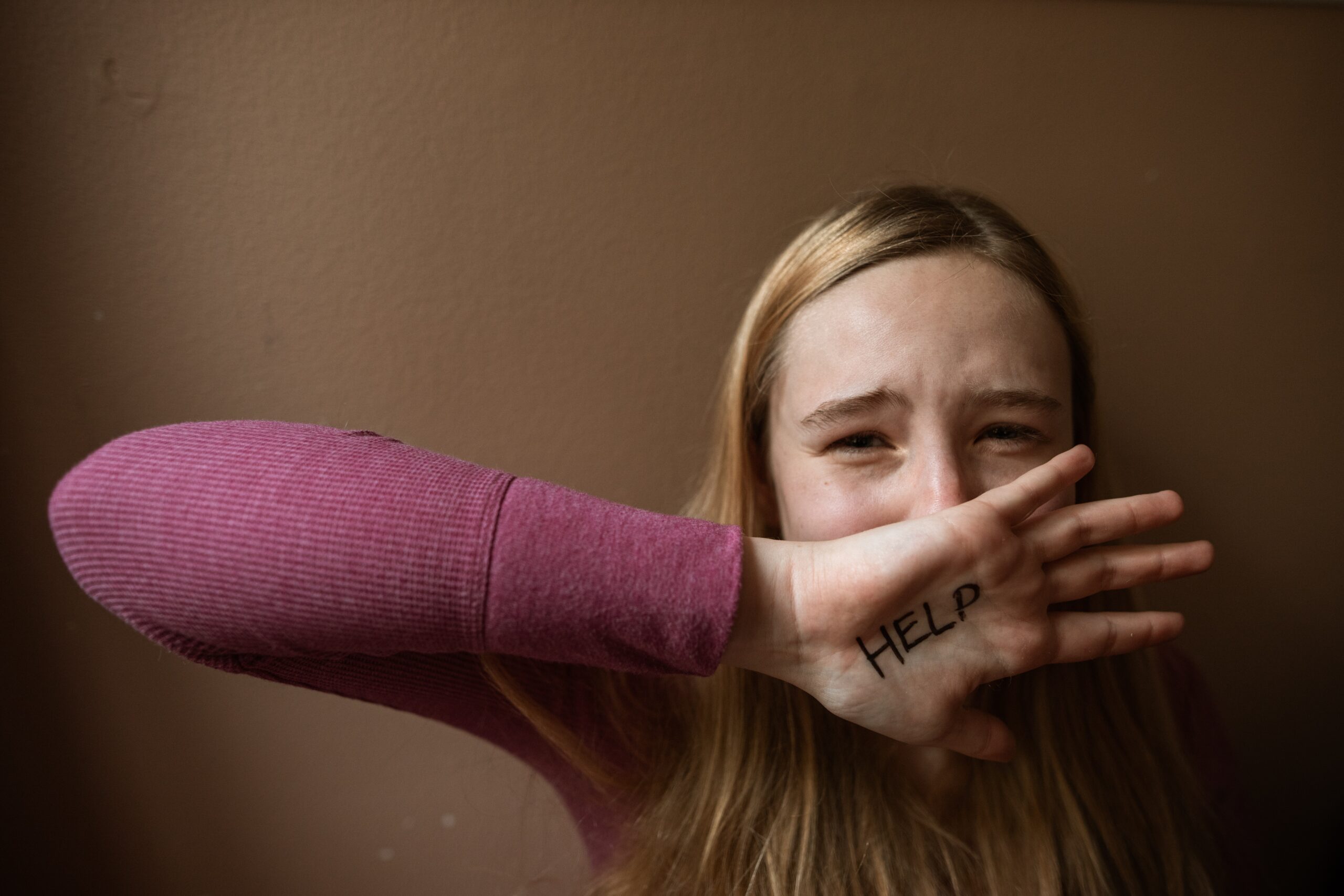![]()
The independent Thought v. Union of India case about the Exception-2 to Section 375 IPC clearly speaks about the rape would not be considered if sexual intercourse of man with minor wife between 15 and 18 years of age. Sec.375 of IPC defines Rape, as a woman who has no or is not capable of consent or willingness to have sexual intercourse and sexual intercourse with a woman less than 18 years. The distinction between a married minor girl and an unmarried girl has no interpretation rather it would cause blanket ban protection to husband to do any illegal activities with minor wife.
The Decision of the Supreme Court, the sexual intercourse of a man with a wife not less than 18 years would be not raped. The parliament needs to amend the statutes under Art.15 (3) of the Constitution of India.
Introduction
The Justice Verma Committee Report made changes age of consent 16 and 18 years for sexual intercourse but Exception 2 of Sec.375 of IPC was kept untouched by the committee. Hence under Art.32 of the Constitution of India petitioner filed a writ petition challenging Exception-2 of Sec. 375 of IPC. The married minor girl would not be ignored by law because of customs, traditions of personal laws. The Fundamental Rights guaranteed by Constitution which attracted the Art.14, 15(3) and 21 of Constitution of India.
Facts of Case
The petitioner was a Registered Society working for Child Rights. This Society provides assistance to non-governmental Organizations and to the government. The society filed a petition under Article 32 of the Constitution of India. Later the Child Trust as intervener becomes a party to the petitioner. The petition was related to Exception-2 to Sec.375 of the IPC sexual intercourse of a man with a wife being a minor between 15 and 18 years of age is not considered rape.
Arguments
In the present case, the petitioner was society registered for the protection of child rights and providing aid to other organizations. Later the Child Trust also joined as Intervener. The legal age of consent increased from 16 to 18 years[1] but Exception-2 of Sec.375 of IPC did not change. Hence petitioner filed a writ petition before Supreme Court.
The petitioner argued that unnecessary distinction made between a married minor girl and an unmarried minor girl violates the constitutional rights of girls who are married between the ages of 15 and 18 years. The sexual intercourse with a girl-child against her will or without her consent simply because she is married to him violates her “human right” to live with dignity guaranteed under the Indian Constitution and protected by the PHRA (Protection of Human Rights Act, 1993). Sec. 375 sixthly makes it clear that sexual intercourse, consensual or non-consensual, with a girl below the age of eighteen is rape. Her consent for sexual intercourse is totally irrelevant. Her consent does not absolve him from liability. It is inconsequential. But Exception-2 of Sec.375 allows a man, with impunity, to have sexual intercourse, consensual or non-consensual, with a girl above 15 years of age, if she happens to be his wife. The intervener (Child Trust) argued on supportive issues to Exception-2 as privacy interpreted to private space to evolve girl and personality development, physical and mental understanding.
The state argued that the husband’s immunity for marital rape is premised on the assumption that a woman, marriage, gives forever her consent to the husband for sexual intercourse. Her husband has the right to have sexual intercourse with her, whether she is willing or not, and she is under obligation to surrender or submit to his will and desire, it also aims at the preservation of family institutions by ruling out the possibility of false, fabricated and motivated complaints of “rape” by “wife” against her “husband” and the pragmatic procedural difficulties that might arise in such a legal proceeding.
Legal Provisions
- Exception-2 of Sec.375 of IPC: Sexual intercourse by a man with his own wife, the wife not being under fifteen years of age, is not rape.
- Article 15 (3) of Constitution of India: Nothing in this article shall prevent the State from making any special provision for women and children.
- Article 21 of Constitution of India: Protection of life and personal liberty No person shall be deprived of his life or personal liberty except according to procedure established by law.
- Sec.5 of POCSO Act, 2012 speaks about (1) Whoever commits aggravated penetrative sexual assault shall be punished with rigorous imprisonment for a term which shall not be less than twenty years, but which may extend to imprisonment for life, which shall mean imprisonment for the remainder of natural life of that person, and shall also be liable to fine, or with death.
(2) The fine imposed under sub-section (1) shall be just and reasonable and paid to the victim to meet the medical expenses and rehabilitation of such victim. - Sec.5 of Juvenile Justice Act, 2015 speaks about the child below age of 18 years who having risk of marriage should need care and protection. Exception 2 of Sec.375 does not take out protection because of girl below 18 years is married. The purpose of Juvenile Justice Act is protection and Benefit of child.
Reports and Conventions
- Justice Shivraj Patil Committee Report: The Karnataka State Amendment has passed decision in 2017 under Protection of Child Marriage Act[2] which abolished child marriages by void ab initio. This may lead to change in society as no personal law safeguard it under customs.
- 84th Report of the Law Commission of India 1980: This Report given emphasis on Child Marriage Restraint Act, 1929 despite old law it focused on prohibition of child marriage under 18 years of age. So petitioner stressed on sexual intercourse with married girl also be sanctioned.
- UNICEF: Child marriage hampered the growth of girl child which includes increased risk of maternal and infant mortality, HIV infection sue to early sexual debut and early childbearing, domestic violence. Moreover, it prohibits character and personality development, self-esteem, self identity, decision-making ability etc.
- Report of Economic Impacts of Child Marriage: according to this report impact caused on health, fertility, population explosion etc. Economic issues created at having birth of child at early age of married girl which cause health problems at time of conceiving and another there may chance of more children over the lifetime. It may be one of the reason for poverty.
- A Statistical Analysis of Child Marriage in India Census 2011: Census data clearly shown there has been increase in death of girl child because of teenage pregnancy. The outcome of child marriage is the marginalization and leads poverty. The most child marriage seen in lower economic conditions of people. Firstly, the concept of marriage not known to the child so forcing to marriage may result of health problems. All basics rights get hampered by child marriage.
- UNCRC 1989: It emphasized upon marriage required individual capable of consent and to take responsibility and decisions. The PCMA, 2006 also mentioned the above 18 years age to marriage. We should think of positive impact by delaying marriage for girls can be reduced in maternal and infant mortality, preventing HIV infection, improvement in status of women and rights of women.
- 36th session of Human Rights Council: According to study the traditions and customs which caused violence to child are harmful and coercive for society.The sexual intercourse with girl child would be prohibited as which caused physical, mental growth of child.
- Protection of Human Rights Act, 1993: It clearly states that sexual intercourse with girl child against her consent and willingness results violation of her human rights as specified in Art.21 of Constitution of India and this one is accepted by CRC 1990 and CEDAW 1979.
- Protection of Women from Domestic Violence Act, 2005: Sec.3 of the said Act, defines what constitutes domestic violence by husband which includes physical abuse, sexual abuse, verbal and emotional abuse and economical abuse etc. and liable for the imprisonment and compensation.
- (CRC)United nation convention on Rights of Child: under Article 34 states that unlawful sexual activities are prevented by government by taking all possible measures. But exception 2 of Sec. 375 of IPC, 1860 states statutory protection to sexual intercourse with minor wife age between 15 and 18 years whereas POSCO 2012 states aggravated penetrative sexual assault by husband or anyone in illegal and punishable. This created the confusion between as marital rape protected or not and unnecessary distinction between sexual intercourse and aggravated penetrative sexual assault.
Case Laws
- Association for Social Justice & Research v. UOI, decision of Delhi High Court that “women who marry early are more likely to suffer abuse and violence, with inevitable psychological as well as physical consequences” was notable.
- Hiral P. Harsora v. Kusum Narottamdas Harsora, the exception made in sec.375 as sexual intercourse with minor wife not considered rape. It may amount to new offence as not including any statutes.
- K.S.Puttaswamy v. Union of India which is of right to privacy. It grants right to take decision about own life, and become capable of stand out among all with own view.
Judgment of Court
The Supreme Court, against the backdrop of the incongruity, identifying five “options” to overcome it and applying the most “viable” option therefore, observed:
it appears that there are really five options before us: (i) To let the incongruity remain as it is – this does not seem a viable option to us, given that the lives of thousands of young girls are at stake; (ii) To strike down as unconstitutional Exception 2 to Section 375 of the IPC – in the present case W.P. (C) No. 382 of 2013 Page 68 this is also not a viable option since this relief was given up and no such issue was raised; (iii) To reduce the age of consent from 18 years to 15 years – this too is not a viable option and would ultimately be for Parliament to decide; (iv) To bring the POCSO Act in consonance with Exception 2 to Section 375 of the IPC – this is also not a viable option since it would require not only a retrograde amendment to the POCSO Act but also to several other pro-child statutes; (v) To read Exception 2 to Section 375 of the IPC in a purposive manner to make it in consonance with the POCSO Act, the spirit of other pro-child legislations and the human rights of a married girl child. Being purposive and harmonious constructionists, we are of opinion that this is the only pragmatic option available.
And the court, employing the only option available to it, ruled that Exception 2 to Sec, 375, IPC, need to meaningfully read as:
“Sexual intercourse or sexual acts by a man with his own wife, the wife not being under eighteen years of age, is not rape.”[3]
It justified its choice of the option and “meaningful” re-reading of Exception 2 to Sec.375, IPC, thus:
“This Court is not creating any new offence but only removing what was unconstitutional and offensive”[4]
It is only through this reading that the intent of social justice to the married girl child and the constitutional vision of the framers of our Constitution can be preserved and protected and perhaps given impetus.
Anticipating the criticism that this re-reading of Exception 2 is not less than usurping the legislative power or creating a new offence, the court has entered into a caveat, “The offence”, the court asserted, “Already exists in the main part of section 375, IPC, as will as in Sec.3 and 5 of POCSO”. What it has some is that it only read it “to bring it in consonance with the Constitution and POCSO.”[5]
The apex court also ruled that none of the justifications hitherto advanced by the Union of India in justification of the marital exception, as it existed in the present form in the Penal Code, is not in tune with the “child-friendly statutes” and the constitutional ethos supporting and strengthening individual liberty and his right to live with dignity, these justifications, the court felt, do not either seem apt and convincingly desist it from re-reading Exception 2 to tune it with the POCSO Act, and the constitutional morality and justice. The court asserted that it has not dealt with the wider issue of “marital rape” of women over 18 years of age (as it was neither raised before it by the petitioner or the Intervener) and nothing said in the pronouncement, therefore, be taken as an observation one way or the other with regard to the issue of “marital rape”.
However, sexual intercourse with a wife, whose marriage with him is void as he was already married and had a living spouse and who was aware of the fact of the first marriage, amounts to rape.[6]
Further, non-consensual sexual intercourse, in terms of the acts mentioned in Sec. 375 (a) to (d), IPC, by a person with his wife who is, under a decree of separation or otherwise, is living separately is made an offence under the IPC.[7] The punishment provided for non-consensual sexual intercourse by a man with his wife living separately is, however, compared to that is provided for consensual or non-consensual sexual intercourse with his minor wife, which, by virtue of Exception 2 to Sec. 375 of the IPC, amounts to rape, is very mild.[8] No court is empowered to take cognizance of the offence of sexual intercourse by husband upon his wife during separation where the persons are in a marital relationship, except upon prima facie satisfaction of the facts which constitute the offence upon a complaint having been filed or made by the wife against the husband.[9]
Conclusion
Therefore Exception 2 of Sec.375 of IPC would be considered as blanket protection to the husband and would cause misuse of the law. The evil results of this Exception 2 would also cause domestic violence, low self-esteem, personality development, lack of education, decision-making process etc. and furthermore at tender age giving birth to a child through which affects the body of mother and child. The backward people seem to performed child marriages because of their mentality, caste-custom beliefs and economic conditions. The whole effect of child marriages is from generation to generation goes on and results in illiteracy, poverty and again criminal activities.
References:
[1] Justice Verma Committee, 2013
[2] 2006
[3] Ibid, para 105
[4] Id. Per Madan B Lokur J. (para 192)
[5] Ibid, para 188
[6] Bhupinder Singh v. Union Trrritory of Chandigarh, (2008) 8 SCC 531 : (2008) Cr LJ 3546 (SC)
[7] Sec. 376B, IPC
[8] Punishment for consensual or non-consensual sexual intercourse by a man with own wife below the age of fifteen (now it is eitherrn) is imprisonment for a term not less than seven years, which may extend to imprisonment for life, and fine. See Sec. 376 (1). Also see “marital rape”, below.
[9] See. Sec. 198 B, CrPC, 1973, Ins. By the Criminal Law (Amendment) Act, 2013 (s 19).



0 Comments